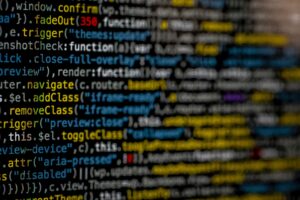As the number of COVID-19 cases continue to increase, the dependency on digital technologies and remote working is intensifying and business as well as social interactions are confined to video calls, and other chat applications. In this piece, Tata Communications’ Avinash Prasad, Vice President and Head for Managed Security Services and Content Delivery Network, explores the impact of the rise in digital on cyber security.
The newfound high dependency on digital has broadened the surface for cyberattacks and related risks, which can potentially deprive individuals and enterprises access to their devices, data or even the internet. It’s no surprise that some of the conferencing apps with the highest usage during this time, have been the target of cybercriminals. An associated question being raised is also around data handling and data privacy as a whole lot of personal information and call data and logs – that are subject to privacy norms – are moving through these platforms. 
Just a couple of weeks ago, more than 2,000 Israeli websites were defaced with an anti-Israeli video and a code that asked for permission to use visitors’ webcams. In some cases, the code attempted to take a picture of the user and send it to a remote server too. Closer home and sometime around March, when the pandemic staring picking up steam in India, the district administrator’s office in Pathanamthitta, Kerala, was also prey to cyber attackers who came with a single intention – to disrupt information flow and operations. We also witnessed state sponsored hackers who were using this opportune time to infect their targets – Chinese, North Korean, and Russian government cyber spies were caught using COVID-19-themed emails to infect victims with malware.
As cybercriminals leverage the disruption brought about by this pandemic, a recent report concluded that the total cloud-based cyberattacks on Indian companies rose by 630 percent between January to April 2020. As such, it is extremely important for organisations to grasp the need for enhanced security strategies. CISOs need to become cybersecurity enablers. At the same time, CISOs will also have to dig into the fundamentals of security and focus on three key areas – a cross-functional and collaborative team, deployment of right monitoring solutions to identify COVID-19 related phishing and malware attacks and sticking to trusted partners and vendors to support their current needs.
Pandemic as a smokescreen
The pandemic has had an immediate effect on businesses who are now facing myriads of operational challenges. They are being forced to embrace new digital solutions and rapidly migrate to interconnected technology platforms to ensure businesses continuity and minimise economic impact and cybercriminals around the world are capitalising on this.
While we see a global spike in the cyberattacks, phishing attempts in India have gone up by 667 percent. The latest and widely reported threat vector, which uses COVID-19 themes for phishing or malware attacks, highlights the evident change in the nature of threats, as attackers exploit catastrophes and human anxiety to obtain credentials and deliver malicious payloads.
A multi-layered security architecture
Though, cyberattacks are not novel to the world and cyber security has been stirring conversations for the last few years, organisations now need to relook at their security framework and deploy a comprehensive, multi-layer information security strategy that includes Confidentiality, Integrity and Availability (CIA).
 Further, as businesses focus on service continuity, Availability, which is one the key pillars of the CIA strategy, has emerged as a vital factor. The foundation of service availability and its technology architecture must rest on internal teams as well as long-standing and trusted external partnerships with service providers. This is most critical during these times, when a number of enterprises have nearly their complete workforce working from home.
Further, as businesses focus on service continuity, Availability, which is one the key pillars of the CIA strategy, has emerged as a vital factor. The foundation of service availability and its technology architecture must rest on internal teams as well as long-standing and trusted external partnerships with service providers. This is most critical during these times, when a number of enterprises have nearly their complete workforce working from home.
Followed by Confidentiality, which is imperative as many CISOs are now battling a sense of lowered security with businesses operating remotely from public networks. This is where the balancing act of a CISO to facilitate different accesses, whilst carefully assessing security and risks to both; employees and organisations will become crucial and take centre-stage.
“Amidst this, Integrity is a crucial supporting pillar for digital business, as there needs to be trust around the data, use and transaction flow for digital business to be executed.”
Hence, Integrity can help stitch together data protection, monitoring changes and privileged access to facilitate business continuity in the COVID-19 environment. A robust security architecture supported by tools such as traffic and email monitoring, filtering and blacklisting solutions, device profiling and user behaviour analysis solutions can surely help in pinpointing any compromised users or machines.
Governance and cross-functional collaboration
As the management and IT teams reassess the risk to their data and organisations consider their response, the CIO and CISO must focus on developing and maintaining visibility across a very extended and transient IT landscape. They also need to adjust the necessary equipment supply and remote access to the organisations network to ensure that the organisation can sail through the huge, unexpected surge in demand for remote-working capacity.
“However, it’s equally vital for various parts of the organisation, such as safety, security and risk management, to come together and make sure that the organisation continues to function seamlessly, and the CISO is a crucial pivot in the business continuity strategy for enterprises to facilitate this.”
CISOs are central to contingency strategies
With technology mediating every single interaction in the business sphere, globally and locally, the CIOs and CISOs have emerged as the key players in conceptualising and executing large-scale crisis-response plans effectively, thereby playing a central role in the ongoing pandemic, ensuring economic outcomes do not suffer, beyond repair. CISOs need to orchestrate various access channels and evaluate them against the organisation’s security and risk management posture to realise organisational stability.
“If one thing is certain in these uncertain times, it is that what may be secure today may not essentially be safe tomorrow. With COVID-19 disrupting civilians and businesses alike, CISOs will become indispensable, especially when it comes to managing enterprise risk and articulating security priorities.”
Use trusted partners 
In the current situation, the need for a rapid response to COVID-19 and with millions of people working remotely, the cloud has undoubtedly emerged as the single unifying thread. However, considering the lack of return on investment on buying infrastructure for short-term requirements, a trusted partner who can deploy and manage expert solutions from virtual infrastructure can help meet the immediate needs.
Additionally, in times of force majeure, being flexible on Service Level Agreements and the norms can help reduce disputes.
Discover more about how businesses can survive and thrive securely post Covid-19.
Transformational Hybrid SolutionsOur cloud-enablement services offer the best performance on your traffic-heavy websites or mission-critical applications.
Core NetworksTata Communications™ global IT infrastructure and fibre network delivers the resources you need, when and where you need them.
Network Resources
Unified Communications As A ServiceBreak the barriers of borders efficiently and increase productivity with Tata Communications’ UC&C solutions.
Global SIP ConnectEmpower your business with our SIP network and witness it grow exponentially.
InstaCC™ - Contact Centre As A ServiceCloud contact centre solutions for digital customers experience and agent productivity.
Unified Communication Resources Case studies, industry papers and other interesting content to help you explore our unified communications solution better.
IoT SolutionsThe Internet of Things is transforming the way we experience the world around us for good. Find out more about our Internet Of Things related solutions here.
Mobility SolutionsTata Communications’ mobility services enable your enterprise to maintain seamless communication across borders, with complete visibility of cost and usage.
Mobility & IoT Resources
Multi-Cloud SolutionsWith enterprises transitioning to a hybrid multi-cloud infrastructure, getting the right deployment model that yields ROI can be a daunting task.
Cloud ComplianceCompliant with data privacy standards across different countries and is also designed to protect customers’ privacy at all levels.
IZO™ Cloud Platform & ServicesIZO™ is a flexible, one-stop cloud enablement platform designed to help you navigate complexity for more agile business performance.
Managed Infrastructure ServicesIntegrated with our integrated Tier-1 network to help your business grow efficiently across borders.
Cloud PartnersWe support a global ecosystem for seamless, secure connectivity to multiple solutions through a single provider.
Cloud Resources
Governance, Risk, and ComplianceRisk and Threat management services to reduce security thefts across your business and improve overall efficiencies and costs.
Cloud SecurityBest-in-class security by our global secure web gateway helps provide visibility and control of users inside and outside the office.
Threat Management - SOCIndustry-leading threat-management service to minimise risk, with an efficient global solution against emerging security breaches and attacks.
Advanced Network SecurityManaged security services for a predictive and proactive range of solutions, driving visibility and context to prevent attacks.
Cyber Security ResourcesCase studies, industry papers and other interesting content to help you explore our securtiy solution better.
Hosted & Managed ServicesTata Communications provide new models for efficient wholesale carrier voice service management. With our managed hosting services make your voice business more efficient and better protected
Wholesale Voice Transport & Termination ServicesYour long-distance international voice traffic is in good hands. End-to-end, voice access & carrier services which includes voice transport and termination with a trusted, global partner.
Voice Access ServicesTata Communication’s provide solutions which take care of your carrier & voice services, from conferencing to call centre or business support applications.
Carrier Services Resources
CDN Acceleration ServicesOur CDN Web Site Acceleration (WSA) solution helps deliver static and dynamic content, guaranteeing higher performance for your website.
CDN SecuritySafeguard your website data and customers’ information by securing your website from hacks and other mala fide cyber activities.
Video CDNDeliver high-quality video content to your customers across platforms – website, app and OTT delivery.
CDN Resources
Elevate CXIncrease customer satisfaction while empowering your service team to deliver world-class customer experience and engagement.
Live Event ServicesTata Communications’ live event services help battle the share if eyeballs as on-demand video drives an explosion of diverse content available on tap for a global audience.
Media Cloud Infrastructure ServicesTata Communications’ media cloud infrastructure offers flexible storage & compute services to build custom media applications.
Global Media NetworkTata Communications’ global media network combines our expertise as a global tier-1 connectivity provider with our end-to-end media ecosystem.
Use CasesUse cases of Tata Communications’ Media Entertainment Services
Remote Production SolutionsMedia contribution, preparation and distribution are highly capital-intensive for producers of live TV and video content, and their workflows are complex.
Media Cloud Ecosystem SolutionsThe Tata Communications media cloud infrastructure services offer the basic building blocks for a cloud infrastructure-as-a-service.
Global Contribution & Distribution SolutionsTata Communications’ global contribution and distribution solution is built to reduce capital outlay and grow global footprint.
Satellite Alternative SolutionsAs more and more consumers choose to cut the cord & switch to internet-based entertainment options, broadcasters are faced with capital allocation decisions.
LeadershipA look into the pillars of Tata communications who carry the torch and are living embodiment of Tata’s values and ethos.
Culture & DiversityHere at Tata Communications we are committed to creating a culture of openness, curiosity and learning. We also believe in driving an extra mile to recognize new talent and cultivate skills.
OfficesA list of Tata Communications office locations worldwide.
FAQCheck out our FAQs section for more information.
SustainabilityOur holistic sustainability strategy is grounded in the pillars of People, Planet and Community with corporate governance at the heart of it.
BoardHave a look at our board of members.
ResultsFind out more about our quarterly results.
Investor PresentationsFollow our repository of investor presentations.
FilingsGet all information regarding filings of Tata communications in one place.
Investor EventsAll investor related event schedule and information at one place.
GovernanceAt Tata, we believe in following our corporate social responsibility which is why we have set up a team for corporate governance.
SharesGet a better understanding of our shares, dividends etc.
SupportGet all investor related contact information here.


